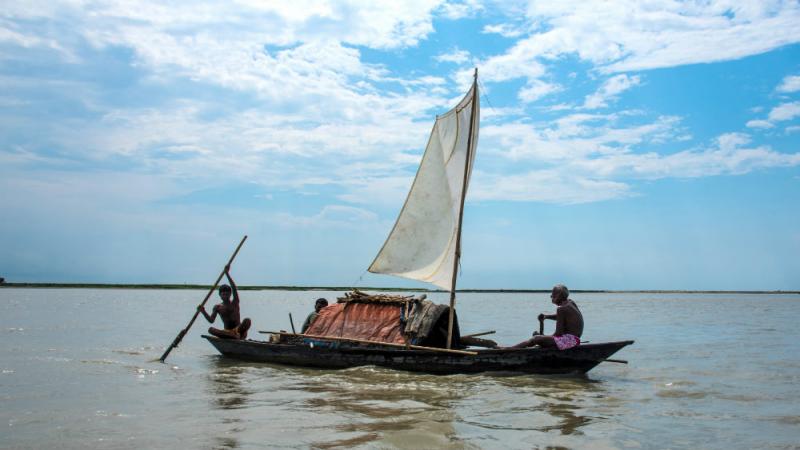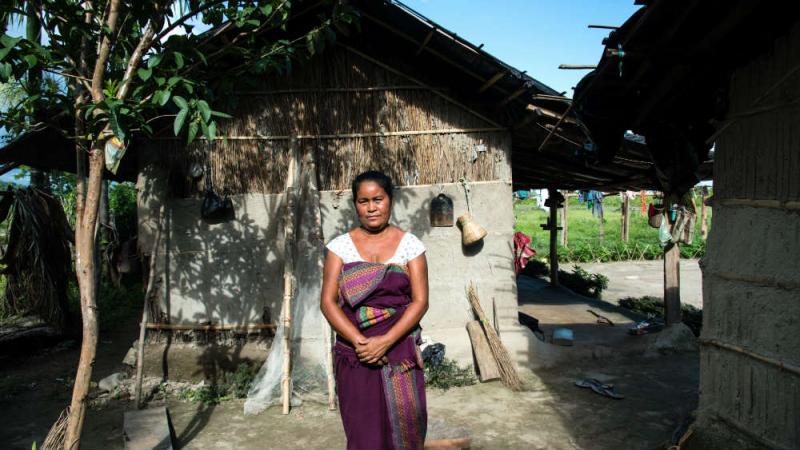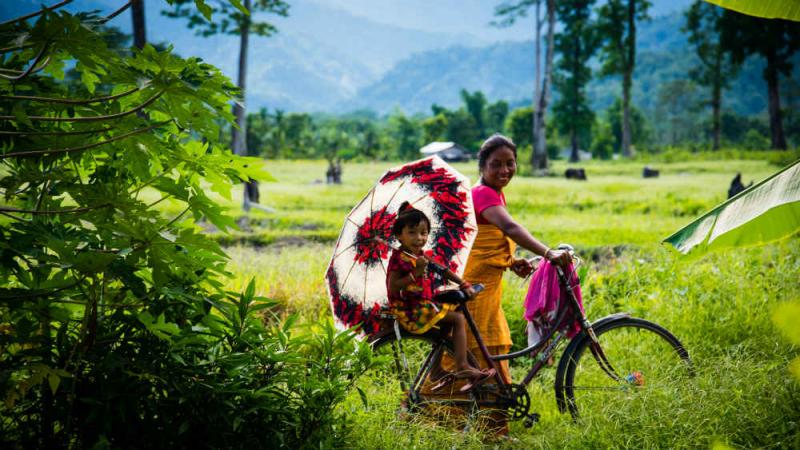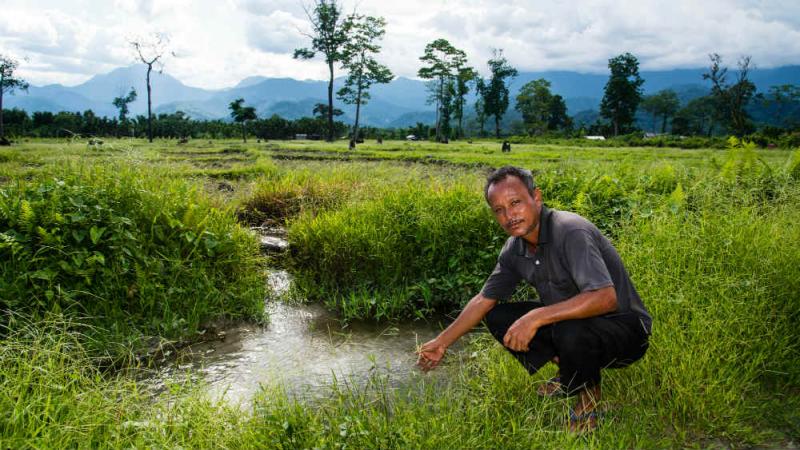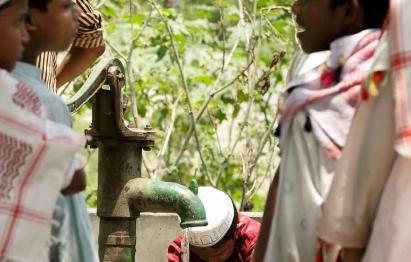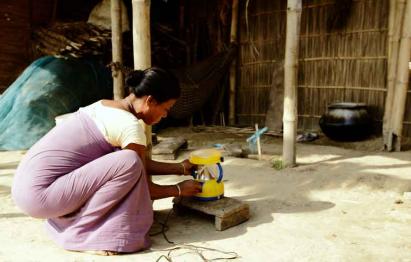Error message
- Warning: file_get_contents(https://api.twitter.com/1.1/statuses/user_timeline.json?count=5&tweet_mode=extended&screen_name=%40OxfamIndia): failed to open stream: HTTP request failed! HTTP/1.1 403 Forbidden
in Drupal\oxfam_social_feeds\Plugin\Block\TwitterFeedsBlock->build() (line 67 of modules/custom/oxfam_social_feeds/src/Plugin/Block/TwitterFeedsBlock.php).
Drupal\oxfam_social_feeds\Plugin\Block\TwitterFeedsBlock->build() (Line: 330) oxfamfrontend_preprocess_taxonomy_term__oxfam_categories__full(Array, 'taxonomy_term', Array) (Line: 287) Drupal\Core\Theme\ThemeManager->render('taxonomy_term', Array) (Line: 431) Drupal\Core\Render\Renderer->doRender(Array, ) (Line: 200) Drupal\Core\Render\Renderer->render(Array, ) (Line: 226) Drupal\Core\Render\MainContent\HtmlRenderer->Drupal\Core\Render\MainContent\{closure}() (Line: 573) Drupal\Core\Render\Renderer->executeInRenderContext(Object, Object) (Line: 227) Drupal\Core\Render\MainContent\HtmlRenderer->prepare(Array, Object, Object) (Line: 117) Drupal\Core\Render\MainContent\HtmlRenderer->renderResponse(Array, Object, Object) (Line: 90) Drupal\Core\EventSubscriber\MainContentViewSubscriber->onViewRenderArray(Object, 'kernel.view', Object) call_user_func(Array, Object, 'kernel.view', Object) (Line: 111) Drupal\Component\EventDispatcher\ContainerAwareEventDispatcher->dispatch('kernel.view', Object) (Line: 156) Symfony\Component\HttpKernel\HttpKernel->handleRaw(Object, 1) (Line: 68) Symfony\Component\HttpKernel\HttpKernel->handle(Object, 1, 1) (Line: 57) Drupal\Core\StackMiddleware\Session->handle(Object, 1, 1) (Line: 47) Drupal\Core\StackMiddleware\KernelPreHandle->handle(Object, 1, 1) (Line: 106) Drupal\page_cache\StackMiddleware\PageCache->pass(Object, 1, 1) (Line: 85) Drupal\page_cache\StackMiddleware\PageCache->handle(Object, 1, 1) (Line: 47) Drupal\Core\StackMiddleware\ReverseProxyMiddleware->handle(Object, 1, 1) (Line: 52) Drupal\Core\StackMiddleware\NegotiationMiddleware->handle(Object, 1, 1) (Line: 23) Stack\StackedHttpKernel->handle(Object, 1, 1) (Line: 708) Drupal\Core\DrupalKernel->handle(Object) (Line: 19) - Warning: count(): Parameter must be an array or an object that implements Countable in Drupal\oxfam_social_feeds\Plugin\Block\TwitterFeedsBlock->build() (line 73 of modules/custom/oxfam_social_feeds/src/Plugin/Block/TwitterFeedsBlock.php).
Drupal\oxfam_social_feeds\Plugin\Block\TwitterFeedsBlock->build() (Line: 330) oxfamfrontend_preprocess_taxonomy_term__oxfam_categories__full(Array, 'taxonomy_term', Array) (Line: 287) Drupal\Core\Theme\ThemeManager->render('taxonomy_term', Array) (Line: 431) Drupal\Core\Render\Renderer->doRender(Array, ) (Line: 200) Drupal\Core\Render\Renderer->render(Array, ) (Line: 226) Drupal\Core\Render\MainContent\HtmlRenderer->Drupal\Core\Render\MainContent\{closure}() (Line: 573) Drupal\Core\Render\Renderer->executeInRenderContext(Object, Object) (Line: 227) Drupal\Core\Render\MainContent\HtmlRenderer->prepare(Array, Object, Object) (Line: 117) Drupal\Core\Render\MainContent\HtmlRenderer->renderResponse(Array, Object, Object) (Line: 90) Drupal\Core\EventSubscriber\MainContentViewSubscriber->onViewRenderArray(Object, 'kernel.view', Object) call_user_func(Array, Object, 'kernel.view', Object) (Line: 111) Drupal\Component\EventDispatcher\ContainerAwareEventDispatcher->dispatch('kernel.view', Object) (Line: 156) Symfony\Component\HttpKernel\HttpKernel->handleRaw(Object, 1) (Line: 68) Symfony\Component\HttpKernel\HttpKernel->handle(Object, 1, 1) (Line: 57) Drupal\Core\StackMiddleware\Session->handle(Object, 1, 1) (Line: 47) Drupal\Core\StackMiddleware\KernelPreHandle->handle(Object, 1, 1) (Line: 106) Drupal\page_cache\StackMiddleware\PageCache->pass(Object, 1, 1) (Line: 85) Drupal\page_cache\StackMiddleware\PageCache->handle(Object, 1, 1) (Line: 47) Drupal\Core\StackMiddleware\ReverseProxyMiddleware->handle(Object, 1, 1) (Line: 52) Drupal\Core\StackMiddleware\NegotiationMiddleware->handle(Object, 1, 1) (Line: 23) Stack\StackedHttpKernel->handle(Object, 1, 1) (Line: 708) Drupal\Core\DrupalKernel->handle(Object) (Line: 19) - Notice: Undefined offset: 0 in oxfamfrontend_preprocess_menu__header_top_right_menu() (line 93 of themes/custom/oxfamfrontend/oxfamfrontend.theme).
oxfamfrontend_preprocess_menu__header_top_right_menu(Array, 'menu__header_top_right_menu', Array) (Line: 287) Drupal\Core\Theme\ThemeManager->render('menu__header_top_right_menu', Array) (Line: 431) Drupal\Core\Render\Renderer->doRender(Array, ) (Line: 200) Drupal\Core\Render\Renderer->render(Array) (Line: 501) Drupal\Core\Template\TwigExtension->escapeFilter(Object, Array, 'html', NULL, 1) (Line: 90) __TwigTemplate_73d7649b173e4bac25122ea39ec5093435c198f6a10317841056b7f04f8e6e51->block_content(Array, Array) (Line: 216) Twig\Template->displayBlock('content', Array, Array) (Line: 79) __TwigTemplate_73d7649b173e4bac25122ea39ec5093435c198f6a10317841056b7f04f8e6e51->doDisplay(Array, Array) (Line: 455) Twig\Template->displayWithErrorHandling(Array, Array) (Line: 422) Twig\Template->display(Array) (Line: 434) Twig\Template->render(Array) (Line: 64) twig_render_template('themes/custom/oxfamfrontend/templates/blocks/block--headertoprightmenu.html.twig', Array) (Line: 384) Drupal\Core\Theme\ThemeManager->render('block', Array) (Line: 431) Drupal\Core\Render\Renderer->doRender(Array) (Line: 444) Drupal\Core\Render\Renderer->doRender(Array, ) (Line: 200) Drupal\Core\Render\Renderer->render(Array) (Line: 501) Drupal\Core\Template\TwigExtension->escapeFilter(Object, Array, 'html', NULL, 1) (Line: 59) __TwigTemplate_69f3df5f6abf0cc4e056e56ef63559ea30ae9734f1116eea2608c222816c0bb2->doDisplay(Array, Array) (Line: 455) Twig\Template->displayWithErrorHandling(Array, Array) (Line: 422) Twig\Template->display(Array) (Line: 434) Twig\Template->render(Array) (Line: 64) twig_render_template('themes/custom/oxfamfrontend/templates/system/page--taxonomy--term.html.twig', Array) (Line: 384) Drupal\Core\Theme\ThemeManager->render('page', Array) (Line: 431) Drupal\Core\Render\Renderer->doRender(Array, ) (Line: 200) Drupal\Core\Render\Renderer->render(Array) (Line: 501) Drupal\Core\Template\TwigExtension->escapeFilter(Object, Array, 'html', NULL, 1) (Line: 377) __TwigTemplate_84ae86668151776ad24629f511bb4827c89c640cfc686ccf61ea2115b5f096d9->doDisplay(Array, Array) (Line: 455) Twig\Template->displayWithErrorHandling(Array, Array) (Line: 422) Twig\Template->display(Array) (Line: 434) Twig\Template->render(Array) (Line: 64) twig_render_template('themes/custom/oxfamfrontend/templates/system/html.html.twig', Array) (Line: 384) Drupal\Core\Theme\ThemeManager->render('html', Array) (Line: 431) Drupal\Core\Render\Renderer->doRender(Array, ) (Line: 200) Drupal\Core\Render\Renderer->render(Array) (Line: 147) Drupal\Core\Render\MainContent\HtmlRenderer->Drupal\Core\Render\MainContent\{closure}() (Line: 573) Drupal\Core\Render\Renderer->executeInRenderContext(Object, Object) (Line: 148) Drupal\Core\Render\MainContent\HtmlRenderer->renderResponse(Array, Object, Object) (Line: 90) Drupal\Core\EventSubscriber\MainContentViewSubscriber->onViewRenderArray(Object, 'kernel.view', Object) call_user_func(Array, Object, 'kernel.view', Object) (Line: 111) Drupal\Component\EventDispatcher\ContainerAwareEventDispatcher->dispatch('kernel.view', Object) (Line: 156) Symfony\Component\HttpKernel\HttpKernel->handleRaw(Object, 1) (Line: 68) Symfony\Component\HttpKernel\HttpKernel->handle(Object, 1, 1) (Line: 57) Drupal\Core\StackMiddleware\Session->handle(Object, 1, 1) (Line: 47) Drupal\Core\StackMiddleware\KernelPreHandle->handle(Object, 1, 1) (Line: 106) Drupal\page_cache\StackMiddleware\PageCache->pass(Object, 1, 1) (Line: 85) Drupal\page_cache\StackMiddleware\PageCache->handle(Object, 1, 1) (Line: 47) Drupal\Core\StackMiddleware\ReverseProxyMiddleware->handle(Object, 1, 1) (Line: 52) Drupal\Core\StackMiddleware\NegotiationMiddleware->handle(Object, 1, 1) (Line: 23) Stack\StackedHttpKernel->handle(Object, 1, 1) (Line: 708) Drupal\Core\DrupalKernel->handle(Object) (Line: 19) - Notice: Trying to access array offset on value of type null in oxfamfrontend_preprocess_menu__header_top_right_menu() (line 93 of themes/custom/oxfamfrontend/oxfamfrontend.theme).
oxfamfrontend_preprocess_menu__header_top_right_menu(Array, 'menu__header_top_right_menu', Array) (Line: 287) Drupal\Core\Theme\ThemeManager->render('menu__header_top_right_menu', Array) (Line: 431) Drupal\Core\Render\Renderer->doRender(Array, ) (Line: 200) Drupal\Core\Render\Renderer->render(Array) (Line: 501) Drupal\Core\Template\TwigExtension->escapeFilter(Object, Array, 'html', NULL, 1) (Line: 90) __TwigTemplate_73d7649b173e4bac25122ea39ec5093435c198f6a10317841056b7f04f8e6e51->block_content(Array, Array) (Line: 216) Twig\Template->displayBlock('content', Array, Array) (Line: 79) __TwigTemplate_73d7649b173e4bac25122ea39ec5093435c198f6a10317841056b7f04f8e6e51->doDisplay(Array, Array) (Line: 455) Twig\Template->displayWithErrorHandling(Array, Array) (Line: 422) Twig\Template->display(Array) (Line: 434) Twig\Template->render(Array) (Line: 64) twig_render_template('themes/custom/oxfamfrontend/templates/blocks/block--headertoprightmenu.html.twig', Array) (Line: 384) Drupal\Core\Theme\ThemeManager->render('block', Array) (Line: 431) Drupal\Core\Render\Renderer->doRender(Array) (Line: 444) Drupal\Core\Render\Renderer->doRender(Array, ) (Line: 200) Drupal\Core\Render\Renderer->render(Array) (Line: 501) Drupal\Core\Template\TwigExtension->escapeFilter(Object, Array, 'html', NULL, 1) (Line: 59) __TwigTemplate_69f3df5f6abf0cc4e056e56ef63559ea30ae9734f1116eea2608c222816c0bb2->doDisplay(Array, Array) (Line: 455) Twig\Template->displayWithErrorHandling(Array, Array) (Line: 422) Twig\Template->display(Array) (Line: 434) Twig\Template->render(Array) (Line: 64) twig_render_template('themes/custom/oxfamfrontend/templates/system/page--taxonomy--term.html.twig', Array) (Line: 384) Drupal\Core\Theme\ThemeManager->render('page', Array) (Line: 431) Drupal\Core\Render\Renderer->doRender(Array, ) (Line: 200) Drupal\Core\Render\Renderer->render(Array) (Line: 501) Drupal\Core\Template\TwigExtension->escapeFilter(Object, Array, 'html', NULL, 1) (Line: 377) __TwigTemplate_84ae86668151776ad24629f511bb4827c89c640cfc686ccf61ea2115b5f096d9->doDisplay(Array, Array) (Line: 455) Twig\Template->displayWithErrorHandling(Array, Array) (Line: 422) Twig\Template->display(Array) (Line: 434) Twig\Template->render(Array) (Line: 64) twig_render_template('themes/custom/oxfamfrontend/templates/system/html.html.twig', Array) (Line: 384) Drupal\Core\Theme\ThemeManager->render('html', Array) (Line: 431) Drupal\Core\Render\Renderer->doRender(Array, ) (Line: 200) Drupal\Core\Render\Renderer->render(Array) (Line: 147) Drupal\Core\Render\MainContent\HtmlRenderer->Drupal\Core\Render\MainContent\{closure}() (Line: 573) Drupal\Core\Render\Renderer->executeInRenderContext(Object, Object) (Line: 148) Drupal\Core\Render\MainContent\HtmlRenderer->renderResponse(Array, Object, Object) (Line: 90) Drupal\Core\EventSubscriber\MainContentViewSubscriber->onViewRenderArray(Object, 'kernel.view', Object) call_user_func(Array, Object, 'kernel.view', Object) (Line: 111) Drupal\Component\EventDispatcher\ContainerAwareEventDispatcher->dispatch('kernel.view', Object) (Line: 156) Symfony\Component\HttpKernel\HttpKernel->handleRaw(Object, 1) (Line: 68) Symfony\Component\HttpKernel\HttpKernel->handle(Object, 1, 1) (Line: 57) Drupal\Core\StackMiddleware\Session->handle(Object, 1, 1) (Line: 47) Drupal\Core\StackMiddleware\KernelPreHandle->handle(Object, 1, 1) (Line: 106) Drupal\page_cache\StackMiddleware\PageCache->pass(Object, 1, 1) (Line: 85) Drupal\page_cache\StackMiddleware\PageCache->handle(Object, 1, 1) (Line: 47) Drupal\Core\StackMiddleware\ReverseProxyMiddleware->handle(Object, 1, 1) (Line: 52) Drupal\Core\StackMiddleware\NegotiationMiddleware->handle(Object, 1, 1) (Line: 23) Stack\StackedHttpKernel->handle(Object, 1, 1) (Line: 708) Drupal\Core\DrupalKernel->handle(Object) (Line: 19) - Notice: Undefined variable: host in oxfamfrontend_preprocess_breadcrumb() (line 2027 of themes/custom/oxfamfrontend/oxfamfrontend.theme).
oxfamfrontend_preprocess_breadcrumb(Array, 'breadcrumb', Array) (Line: 287) Drupal\Core\Theme\ThemeManager->render('breadcrumb', Array) (Line: 431) Drupal\Core\Render\Renderer->doRender(Array, ) (Line: 200) Drupal\Core\Render\Renderer->render(Array) (Line: 501) Drupal\Core\Template\TwigExtension->escapeFilter(Object, Array, 'html', NULL, 1) (Line: 91) __TwigTemplate_2b51de83e80063ec313274ce6f3ceba482516f92c663ad86a8dc53843f4be9ec->block_content(Array, Array) (Line: 216) Twig\Template->displayBlock('content', Array, Array) (Line: 80) __TwigTemplate_2b51de83e80063ec313274ce6f3ceba482516f92c663ad86a8dc53843f4be9ec->doDisplay(Array, Array) (Line: 455) Twig\Template->displayWithErrorHandling(Array, Array) (Line: 422) Twig\Template->display(Array) (Line: 434) Twig\Template->render(Array) (Line: 64) twig_render_template('core/themes/stable/templates/block/block.html.twig', Array) (Line: 384) Drupal\Core\Theme\ThemeManager->render('block', Array) (Line: 431) Drupal\Core\Render\Renderer->doRender(Array) (Line: 444) Drupal\Core\Render\Renderer->doRender(Array, ) (Line: 200) Drupal\Core\Render\Renderer->render(Array) (Line: 501) Drupal\Core\Template\TwigExtension->escapeFilter(Object, Array, 'html', NULL, 1) (Line: 63) __TwigTemplate_69f3df5f6abf0cc4e056e56ef63559ea30ae9734f1116eea2608c222816c0bb2->doDisplay(Array, Array) (Line: 455) Twig\Template->displayWithErrorHandling(Array, Array) (Line: 422) Twig\Template->display(Array) (Line: 434) Twig\Template->render(Array) (Line: 64) twig_render_template('themes/custom/oxfamfrontend/templates/system/page--taxonomy--term.html.twig', Array) (Line: 384) Drupal\Core\Theme\ThemeManager->render('page', Array) (Line: 431) Drupal\Core\Render\Renderer->doRender(Array, ) (Line: 200) Drupal\Core\Render\Renderer->render(Array) (Line: 501) Drupal\Core\Template\TwigExtension->escapeFilter(Object, Array, 'html', NULL, 1) (Line: 377) __TwigTemplate_84ae86668151776ad24629f511bb4827c89c640cfc686ccf61ea2115b5f096d9->doDisplay(Array, Array) (Line: 455) Twig\Template->displayWithErrorHandling(Array, Array) (Line: 422) Twig\Template->display(Array) (Line: 434) Twig\Template->render(Array) (Line: 64) twig_render_template('themes/custom/oxfamfrontend/templates/system/html.html.twig', Array) (Line: 384) Drupal\Core\Theme\ThemeManager->render('html', Array) (Line: 431) Drupal\Core\Render\Renderer->doRender(Array, ) (Line: 200) Drupal\Core\Render\Renderer->render(Array) (Line: 147) Drupal\Core\Render\MainContent\HtmlRenderer->Drupal\Core\Render\MainContent\{closure}() (Line: 573) Drupal\Core\Render\Renderer->executeInRenderContext(Object, Object) (Line: 148) Drupal\Core\Render\MainContent\HtmlRenderer->renderResponse(Array, Object, Object) (Line: 90) Drupal\Core\EventSubscriber\MainContentViewSubscriber->onViewRenderArray(Object, 'kernel.view', Object) call_user_func(Array, Object, 'kernel.view', Object) (Line: 111) Drupal\Component\EventDispatcher\ContainerAwareEventDispatcher->dispatch('kernel.view', Object) (Line: 156) Symfony\Component\HttpKernel\HttpKernel->handleRaw(Object, 1) (Line: 68) Symfony\Component\HttpKernel\HttpKernel->handle(Object, 1, 1) (Line: 57) Drupal\Core\StackMiddleware\Session->handle(Object, 1, 1) (Line: 47) Drupal\Core\StackMiddleware\KernelPreHandle->handle(Object, 1, 1) (Line: 106) Drupal\page_cache\StackMiddleware\PageCache->pass(Object, 1, 1) (Line: 85) Drupal\page_cache\StackMiddleware\PageCache->handle(Object, 1, 1) (Line: 47) Drupal\Core\StackMiddleware\ReverseProxyMiddleware->handle(Object, 1, 1) (Line: 52) Drupal\Core\StackMiddleware\NegotiationMiddleware->handle(Object, 1, 1) (Line: 23) Stack\StackedHttpKernel->handle(Object, 1, 1) (Line: 708) Drupal\Core\DrupalKernel->handle(Object) (Line: 19)
Transboundary Rivers of South Asia (TROSA)
A programme to understand and address challenges related to transboundary rivers and communities in these river basins.
About
The Transboundary Rivers of South Asia (TROSA) is a five-year (2016-2021) regional programme being jointly implemented by Oxfam and its partners in Nepal, India, Bangladesh, and Myanmar to understand and address challenges related to transboundary rivers, and work together to create conditions to reduce poverty of communities living in the Ganga-Brahmaputra-Meghna and the Salween river basins. Oxfam believes that empowered community having access to and control over water resources can significantly contribute to reducing poverty and inequality and achieve prosperity. To make it happen, Oxfam is implementing the TROSA project in collaboration with governments, private sectors, and civil society networks and alliances at all levels in those four countries.
TROSA project aims to achieve positive change in the lives of marginalized and vulnerable riparian communities. The ultimate goal (impact) of the project is reduced poverty of marginalized and vulnerable river basin communities through increased access to and control over water resources.
Oxfam envisions that the implementation of the TROSA programme will lead to an increased level of community involvement in the equitable and sustainable water resource management at the local and regional level. Transboundary Dialogues between community, Governments and other stakeholders is a key prerequisite to achieving sustainable solutions at the regional level.
Geographical Intervention areas
In this regard, Oxfam India along with its partners, Aranyak, GDS, NERSWN and PAD is working for the poorest of the riparian communities in Saralbhanga, lower Brahmaputra and Sharda River Basins with the objective of reducing poverty and marginalisation of vulnerable river basin communities by increasing their access and control over riverine water resources. Saralbhanga is a Transboundary river basin between India and Bhutan. Oxfam India works in Kokrajhar districts with downstream riparian communities dependent mainly on agriculture. Oxfam is also working in Lower Brahmaputra Valley at Lakhimpur in North Assam and South Salmara and Dhubri in South Assam. In Uttar Pradesh, we are working in Sharda River basin covering regions from Palin Kalan.
Stakeholders
Projects attempt mainly to reach to the excluded and marginalised water dependent livelihood groups with a focus on women and IDPs.
The context and challenges are so interlinked and interwoven between the upstream and downstream communities that it cannot be dealt with in isolation and taking river basin approach is essential for collective action towards sustainable solutions. Other than the riparian communities, key stakeholders include the Government and Private sectors whose policies and practices have a significant impact on the lives of water-dependent communities. Civil Society including transboundary networks is also being engaged to act as a catalyst between community, Government and the private sector.
Objectives
The project aims to achieve the following five outcomes:
- Government policies and practices in water resources management are more inclusive of community concerns and meet national and international standards.
- Practices of private sector respect community access to water resources actively contributing to reducing conflict.
- CSOs increasingly participate in or influence trans-boundary water governance, women inclusion and resolution of water conflicts.
- a) Local communities are better able to reduce their vulnerability to water resource related shock including from conflict & disasters.
b) Local communities have more secure access and control over their water resources.
- Increased participation and influence of women in trans-boundary water governance, policies & processes
In this endeavour, the project takes a three-pronged approach of
- Recognising and respecting collective rights of the shared water resources. This is the basic premise for inclusive water governance and it is important that powerful and influential stakeholders like the corporates and private sector puts communities rights at the centre while determining their policies and actions. Oxfam aims to create spaces for the community, particularly the most marginalised. Identify and groom women and youth leaders to advocate for community rights.
- Recognising common responsibility for river basins at all levels especially in the project context with cross-border communities, private sector and Governments. Strengthening community to community dialogues across political boundaries and creating similar platforms for CSOs, corporates and Governments to discuss and promote water stewardship. Oxfam aims to facilitate the processes of creating platforms for discussions and consultations, generate evidence and share learning and practices at various levels of governance. Organizes private sector agencies to take collective action towards responsible business on transboundary rivers.
- Building trust amongst diverse stakeholders and building a strong foundation for collective action on water governance. Oxfam aims to create an enabling environment and common platforms to bring diverse actors together to understand issues at various levels and collectively work towards solutions. Multi-Stakeholder’s platform for inclusive water governance can be one of the many strategies towards this endeavour.
Key Achievements
The project is currently in its the second year of implementation. At this stage in the project, many institutional structures have been created and some have started engaging with the relevant stakeholders from local to the regional level to:
- improve policies and practice of governments that protect the rights of communities to water resources, living along the Sharda/Mahakali, Saralbhanga and Brahmaputra river basins.
- improve policies and practices of the private sector and other actors that respect the rights of river basin communities to water resources.
- strengthen the capacity of river basin communities and civil society to influence transboundary water resource management.
- amplify women’s profile and influence in dialogues and decision-making on water management and water infrastructure.
Some of the early achievements include
- Established South Asia Regional Platform for Regional Cooperation on Transboundary Early Warning System with representations from countries including Afghanistan, Bangladesh, Nepal, India, Thailand and Japan.
- Expanded the scope of work to Indo-Bhutan region in Saralbhanga River Basin. Oxfam shares its work on “Shared waters as a catalyst for peace: Learnings from Saralbhanga conflict resolution at Indo-Bhutan” in the 2018 Greater Mekong Learning Forum.
- Reviewed Draft River Basin Management Bill -2018 in Uttar Pradesh and Assam and submitted inputs to the ministry of water resources.
- Reviewed Draft National Disaster Management Plan 2018 from transboundary, DRR and humanitarian perspectives. Consultations covered 11 districts and 4 states all cumulating in the National Consultations in Kerala. Inputs submitted to NDMA.
- One of the three winners at DCHI – Spindle contest for Best Humanitarian Innovation at the 2018 Partos Humanitarian festival in Amsterdam.
- Mahakali Advocacy Workshop organized in Tanakpur on December 7th and 8th.



